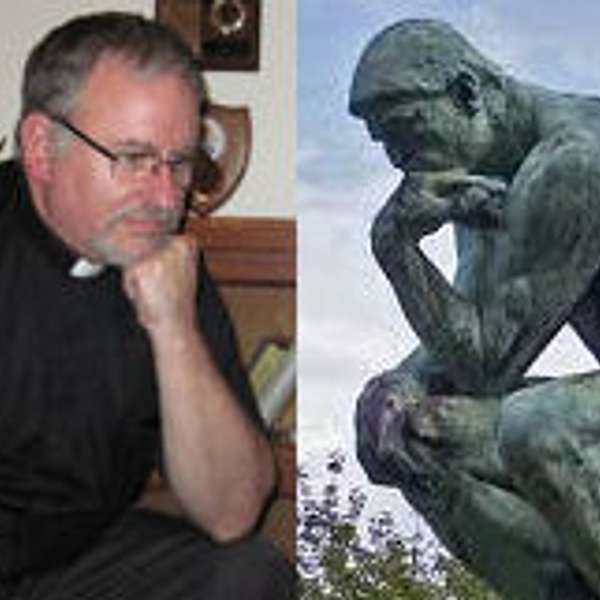
Father Frank's Think Tank
Father Frank's Think Tank
26 October 2025
Use Left/Right to seek, Home/End to jump to start or end. Hold shift to jump forward or backward.
26 October 2025 - 30th Sunday of Ordinary Time
Reading:
Luke 18:11; 13; 2 Timothy 4:7
Write:
O God, I thank you that I am not like the rest of humanity…
O God, be merciful to me a sinner…
I have competed well; I have finished the race; I have kept the faith…
Reflect:
Three very different verses, but they all have something important to say to us. The first one is one we should reject. It is the arrogance of the Pharisee, but also of people who think that they are righteous in and of themselves. No! I think there are some people like that! And it is a terrible tragedy because it betrays pride and arrogance – an unwillingness to humble oneself before God.
There is another problem with this kind of individual. He thinks he should compare himself to other people. When the reality is the only one we should be comparing ourselves to is Christ. It is terribly wrong to say, “well at least I’m not as bad as… thatperson.”
If we are allowing ourselves to compare ourselves to someone else, instead of Jesus, we are not holding ourselves to the standards that God wants us to live by. There is no one – no one – who is capable of being a perfect example for us, except for Jesus – well, all right, I will give you Mary too. But the error here is in comparing ourselves by any standard less than God himself and his mother.
Now, let’s look at the verse “O God, be merciful to me a sinner…” Can you find any problem in that statement? I can! Yes, we are all sinners. But we have been forgiven. We have been cleansed by the Blood of the Lamb and made into a new creation by the power of Baptism. To look at ourselves only as sinners runs the risk of failing to accept what God has chosen to do – and declare – for us: we are children of the King.
Yes, we need to acknowledge the fact that we fail – we sin. But God in his great mercy forgives our sins and restores us every time. There was a Christian song a number of years ago that had as a major part of the refrain going something like this: God raises his hand for silence in heaven from all the choirs of angels and saints when from the earth he hears one voice asking for mercy and forgiveness. No sweeter sound is there in God’s ear than this phrase: “O God, be merciful to me a sinner…”
But this is what leads us into the third phrase – the one from St. Paul that I quoted earlier – because it is a phrase that recognizes our sinfulness and the victory that has been won for us by God. It also acknowledges that we are responsible in some mysterious way when we overcome sin. Yes, it is the grace of God – and only by the grace of God – that we are able to overcome the… junk that we face in our lives.
But, when we can say with St. Paul “I have competed well; I have finished the race; I have kept the faith…” It is not a question of us acting like a Pharisee and pridefully boasting “look what I have done!” No. St. Paul understood that his work for the kingdom was full of challenges that he willingly worked through for the sake of the kingdom. Our work for the sake of the kingdom may not be as earth forming – not earth shattering, but earth forming – as St. Paul, but it is the race that we have been asked to run.
What was Kenny Rogers’ song “The Gambler” saying in the refrain? “You never count your money while sitting at the table…” Well, St. Paul was no longer at “the table” as he was writing to Saint Timothy. He was at the end of his life. He could see the crown of righteousness awaiting him. He was in prison and waiting to die. I do not know if any of us will have that clarity toward the end of our life. But we can respond – and should respond – every night as we examine our day with Paul’s line “I have kept the faith.”
Look at what else Paul says to Timothy: “But the Lord stood by me and gave me strength, so that through me the proclamation might be completed…”
Our work is not yet been completed. We still have other people to meet and point them to Jesus. We may not face of a lion’s mouth, but the Lord’s promise is that we will be brought safe to his kingdom. We need to avoid being a Pharisee or a tax collector. But if you have to choose one of the two, a tax collector is better, provided he is really humble.
What is best? To be like St. Paul, to compete well, to run the race, to keep the faith. Then we can have confidence that the King Himself will say to us “well done good and faithful servant.”
+++++